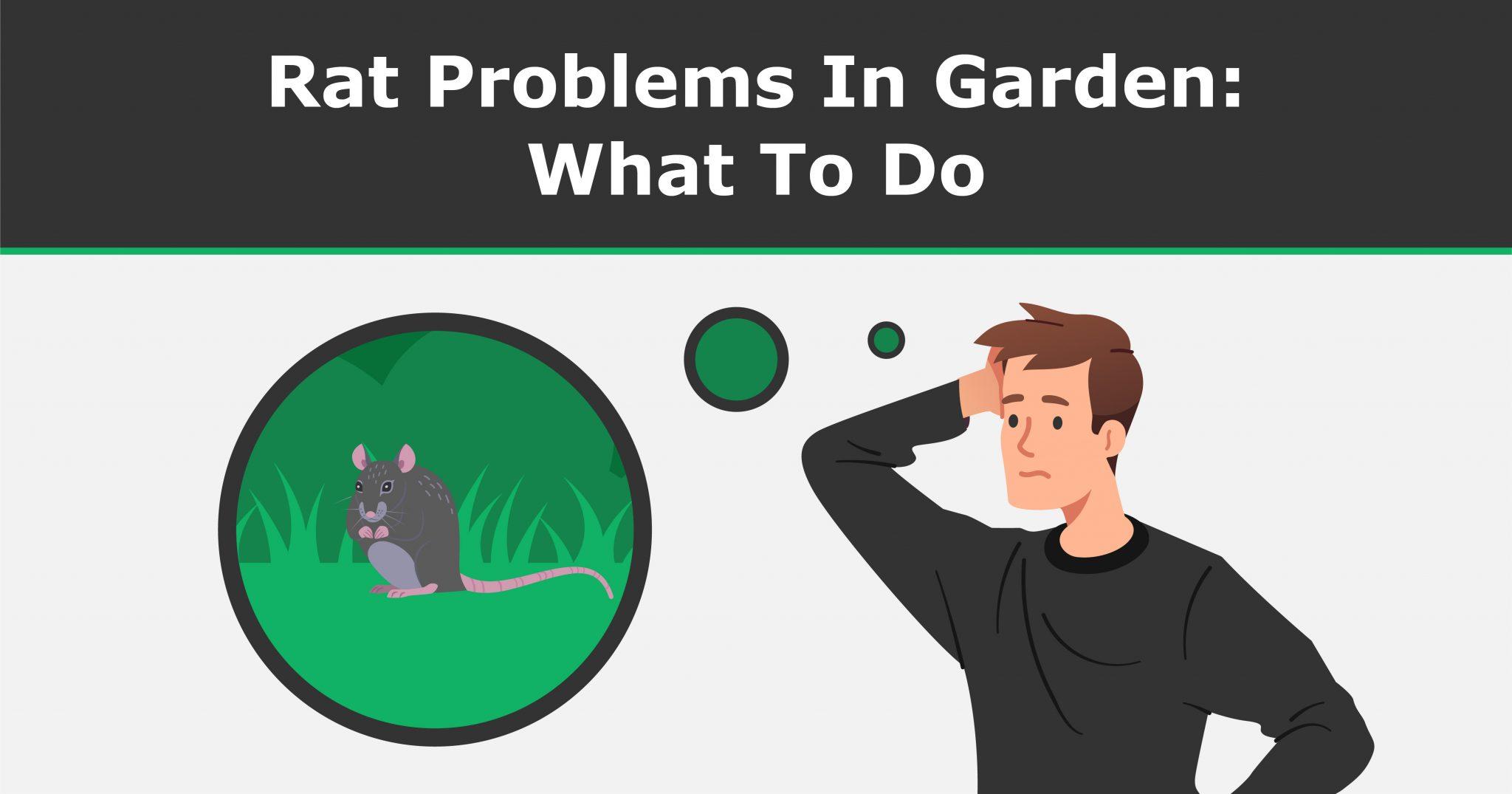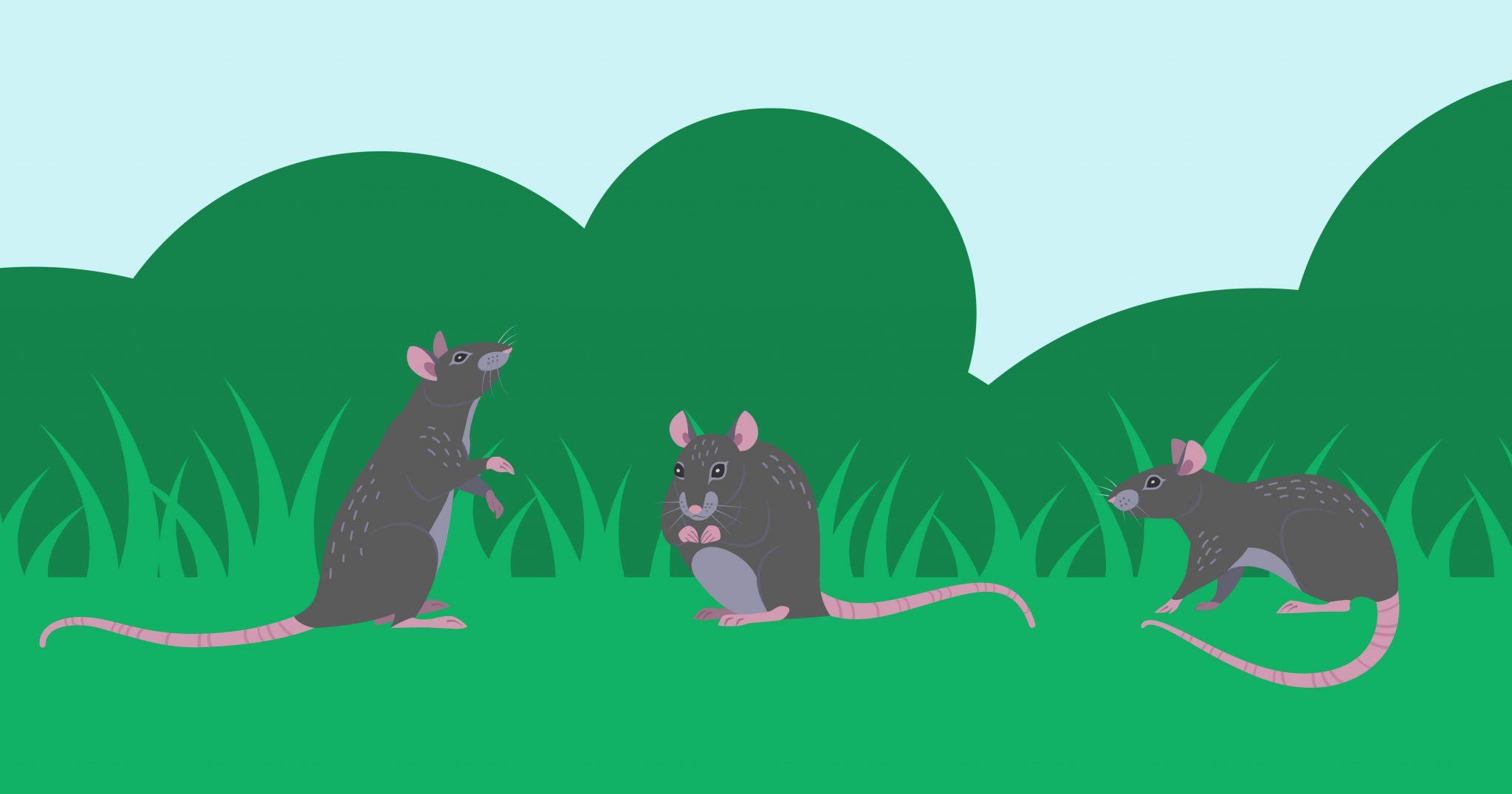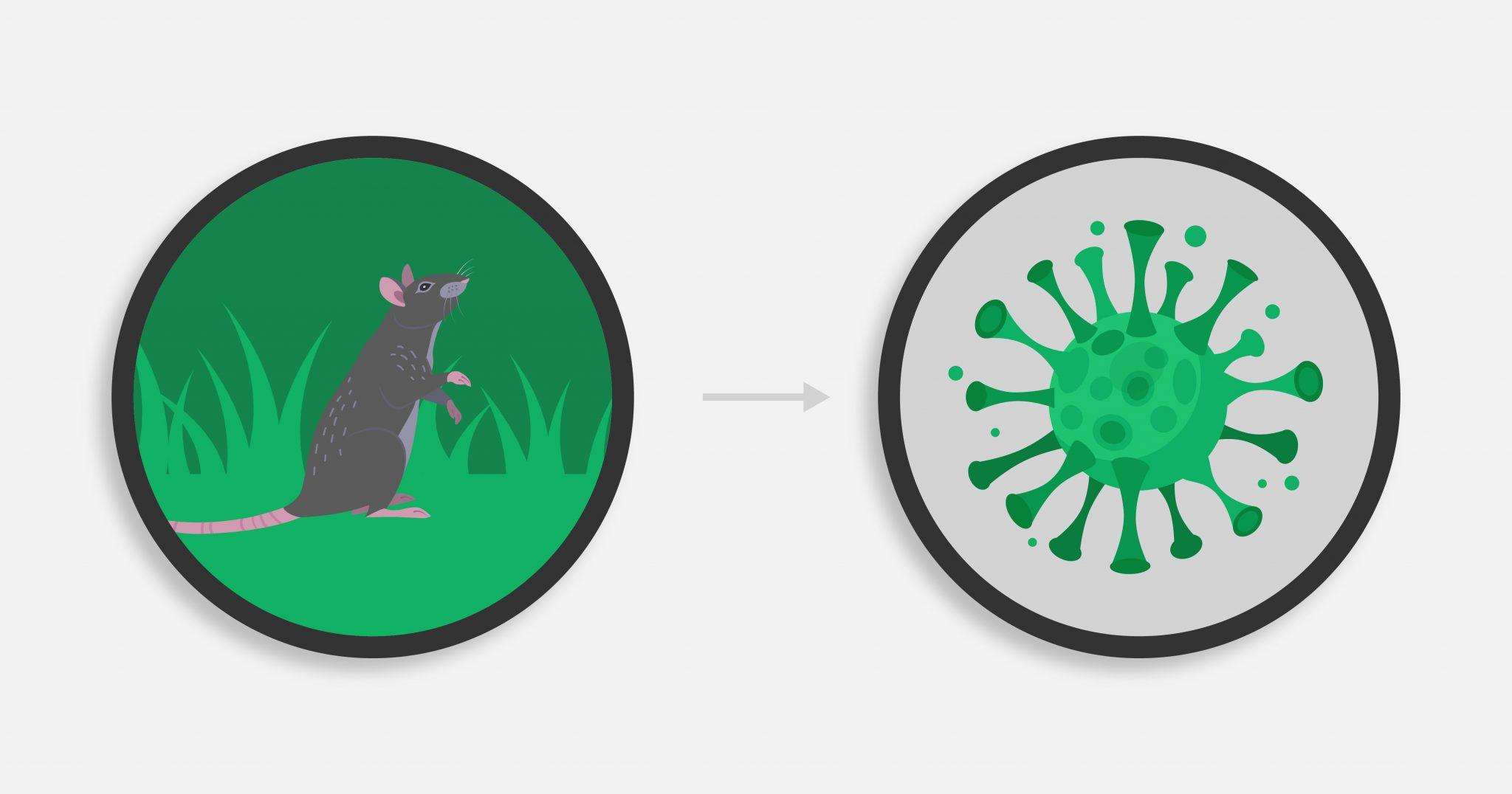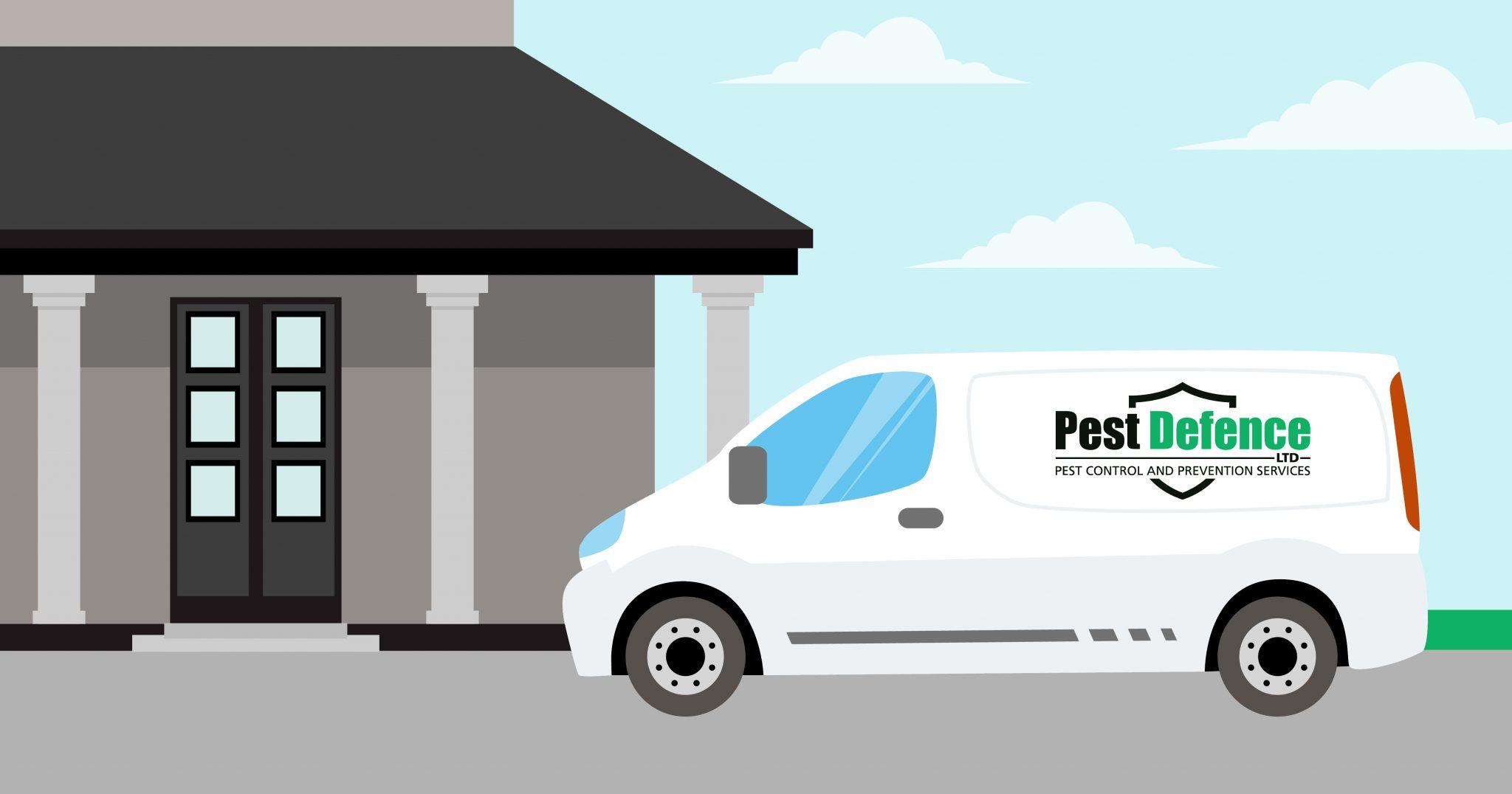Rat Problems In Your Garden: What To Do
Enjoying a lazy day in the sunshine, hanging washing out to dry or playing games with your kids – whatever you use your garden for, it’s your own personal haven. The last thing you want to find is that it has been infested by rats.
Rat problems in your garden can be a source of stress and anxiety, especially with small children or pets around, but it’s important not to panic.
To help you deal with rats that have taken up home in your garden, we’ve put together a quick guide. This will help you to assess whether you have a rat problem, what dangers they pose and what your options are.
We’ll begin with a quick overview of the common signs of rats in gardens.

Signs of rats in the garden

Clearly, if you’ve seen rats scurrying along your fence line or anywhere else in your garden, that’s the most obvious sign that you might have a rat issue. You’re most likely to see the brown Norway rat in your garden, or the common black rat if you live closer to the coast.
However, there are several other signs to look out for in your outdoor areas, including:
Droppings
Small, 15-20mm droppings, cylindrical in shape, are a key sign that there are rats frequenting your garden.
Gnawing
Whether to keep their teeth trimmed or create an entrance, rats are notorious for causing damage with their teeth. Look out for signs of gnawing on wooden structures such as fence panels and sheds, as well as on items inside your shed such as cardboard boxes.
Footprints
They’re not always easy to spot, but if you notice small footprints regularly appearing, you may want to investigate a possible infestation. Smear marks along wooden or metal surfaces will show areas in your garden that rats are frequently using.
Burrow Holes
Small holes, roughly 6-9 cm in size, are a sure sign that rats have taken up nesting in your garden. These will usually be in undisturbed areas and can either be nesting spots or somewhere they’re storing food.
If you can spot several of the things mentioned above, then you’ll have greater certainty over whether it’s your garden the rats have taken a liking to. However, if you’re unsure of where the rats are living or need a professional assessment, always call in the experts.
Should I be worried if I see a rat in my garden?

We’ll go over the dangers of rats in your garden in our next section, but it’s important to establish whether you really have an infestation or not.
Despite being pests, rats are animals that you might spot outdoors naturally at some point, usually at night. Seeing a rat in your garden, however, is cause for concern, and while it might be passing through to a neighbouring property rather than staying in your garden, getting a sighting of one can raise red flags that they’re close by.
There are things you can do to prevent rats from coming back into your garden if they aren’t actually nesting there, including blocking off small gaps and pathways and ensuring you don’t leave any food or potential nesting material around.
What are the dangers of rats in the garden?

The greatest danger that comes with the presence of rats is that they carry rodent-borne diseases. This can include things such as leptospirosis, salmonellosis, plague, rat-bite fever, tularemia, bartonellosis and more. These diseases pose an immediate danger to you, your family and even your pets, making your garden unsafe.
From accidental contact with their urine and faeces to inhaling any infectious dust particles if they’ve been nesting in your shed, there are numerous risks associated with rodents in your garden, just the same as if you’d found them in your home.
It should go without saying that you should never handle live or dead rats, as the diseases they carry can be easily transmitted. Live rats are especially dangerous as they can scratch or bite — something you need to be extra wary of if you have inquisitive pets roaming the garden.
What to do if you see a rat in the garden
We’ve already mentioned a few quick tips on preventing rats from gaining access to your garden, but what if you see them – or signs of them – regularly? This could mean they have a nest close by or somewhere within your garden.
One option you have is to deploy some form of DIY rodent control product, but this will require specific knowledge to get the right option, as well as where to place the substances to make them both effective and safe. By using such things without caution, you could make your garden even more hazardous for you and your family. For a guaranteed way to eliminate any pests from your garden, the best option is to call your local, professional pest control company.
That’s where Pest Defence comes in.
Rat prevention and elimination from Pest Defence

If you’re worried about rats you’ve spotted in your garden or if you’ve discovered a rat’s nest, then look no further than our trusted expert team at Pest Defence. We have all the knowledge and skill to deal with rodents in your garden to make your space safe and enjoyable once again. We can also advise and provide services to help prevent re-infestation.
Call today for effective and secure pest control in London and Essex, including Chelmsford, Colchester and Brentwood. When you’ve got issues with rats in your garden, shed or garage, our fully trained and insured team will be on hand to assist you.


